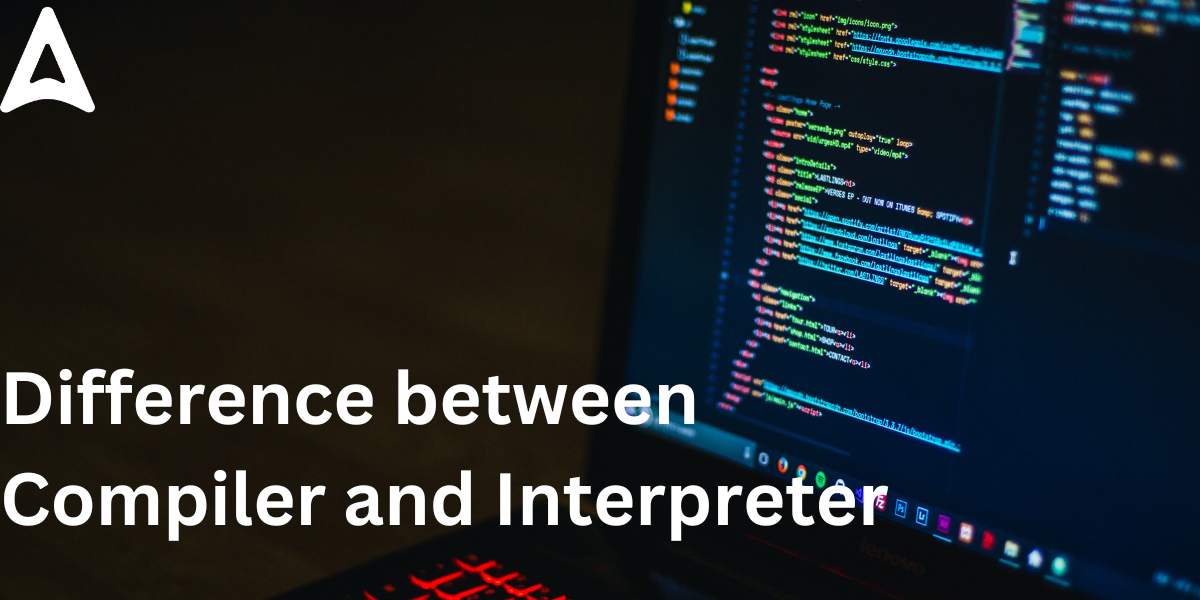Difference between compiler and interpreter: Compilers and interpreters are both used to convert a high-level language program into machine code that computers can understand. This makes it difficult to tell the difference between a compiler and an interpreter. Despite both translating the Programming langugae into Machine language, there is some difference between Compiler and Interpreter. In this article, we will learn about compilers and interpreters, as well as the differences between Compilers and interpreters
Difference between Compiler and Interpreter
Before Exploring the difference between Compiler and Interpreter, It is important to have a brief Idea about compiler and Interpreter. In general, computer programs are written in source code, which is a high-level language that a person can easily understand. A computer, on the other hand, does not grasp high-level language. It can only understand programs written in binary code, or 0’s and 1’s, which is referred to as machine code. Because computers cannot grasp the same high-level language, we must transform them into machine code and make them computer-readable. Here We need a compiler or an interpreter to transform source code into machine code to run our operations on a computer.
Difference between Compiler and Interpreter: What is Compiler?
A compiler is computer software that translates high-level programming languages (source code) into a form that is machine-readable known as low-level programming languages (machine code) that computers can understand. It is essentially a computer program that converts codes written in a programming language into machine code (binary 0 and 1) that a computer processor can understand). The machine code is subsequently processed by the computer to complete the associated tasks.
Difference between Compiler and Interpreter: What is Interpreter?
Interpreters, like compilers, function in programming to translate high-level languages to low-level ones. But an interpreter is a program that directly executes high-level language commands without translating them to machine code. It is included Pre-compiled code, source code, and scripts. It sequentially translates and executes programming language statements.
Difference between Compiler and Interpreter Class 6
Both the Compiler and the Interpreter have comparable tasks to carry out, but there is a difference between Compiler and Interpreter in how they execute a task. Interpreters and compilers are both programming programs that convert source code (high-level language) to machine code. Let us now examine the difference between Compiler and Interpreter.
| Difference between Compiler and Interpreter | ||
| Points of Difference | Compiler | Interpreter |
| Process of Analyze | In a compiler, the entire program is analyzed at once. | A line-by-line analysis of the program is done by an interpreter. |
| Flexibility | Less flexible | More flexible |
| Working model | The Compiler’s basic working model is the Linking-Loading Model. | The Interpretation Model is the Interpreter’s fundamental working model. |
| Machine Language | It saves the machine language as machine code on the disk. | It does not store the machine language in any way. |
| Error | This translator displays all errors after compilation–all at once. | It shows the errors in each line one by one. |
| Executing errors | As a compiler displays every mistake As a result, you can’t run this program until you correct the issues | An Interpreter reads each statement and displays any faults it finds. In order to interpret the next line, the user must correct these errors. |
| Error Verification | Syntactic and semantic errors can be checked at the same time. | Only syntactic errors are scrutinized. |
| Running Time | Compilers take a long time for a compiler to study source code. However, compiled programming code executes faster as an interpreter compression. | Compared to a compiler, an interpreter takes less time to evaluate source code. However, Overall an interpreted programming code runs slower than compiler, |
| Output | Compilers produce intermediate machine code in the form of (.exe). | The Interpreters never provide intermediate machine codes as output. |
| Object Code | Produce object code that is permanently stored in memory for use in linking. | There is no Object Code generated, |
| Optimization | The compiled codes run relatively faster since the compiler can view the code ahead of time, which aids in running the code faster due to optimization. | Since interpreted code is processed line by line, optimization is a little slower than compiling in comparison to interpreted code. |
| Environment | Compilers are usually used in the production environment. | Interpreters are typically used in programming and development environments. |
| CPU Utilization | More Utilization. | In comparison to compilers less utilization. |
| Programming Languages | Compilers are used by Java, Scala, C#, C, and C++. | Interpreters are used by Perl, Ruby, and PHP. |
Other Related Posts –









 CBSE Class 10 English Question Paper 202...
CBSE Class 10 English Question Paper 202...
 UP Board Class 10 Social Science Questio...
UP Board Class 10 Social Science Questio...
 CBSE Class 12 Physics Answer Key 2026 Ou...
CBSE Class 12 Physics Answer Key 2026 Ou...














